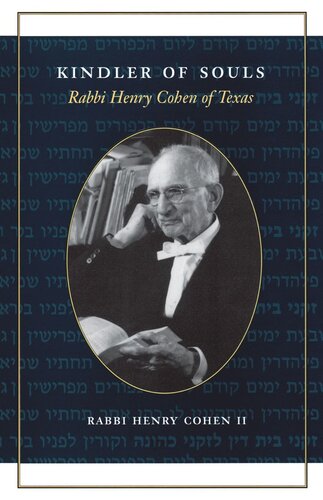

Most ebook files are in PDF format, so you can easily read them using various software such as Foxit Reader or directly on the Google Chrome browser.
Some ebook files are released by publishers in other formats such as .awz, .mobi, .epub, .fb2, etc. You may need to install specific software to read these formats on mobile/PC, such as Calibre.
Please read the tutorial at this link: https://ebookbell.com/faq
We offer FREE conversion to the popular formats you request; however, this may take some time. Therefore, right after payment, please email us, and we will try to provide the service as quickly as possible.
For some exceptional file formats or broken links (if any), please refrain from opening any disputes. Instead, email us first, and we will try to assist within a maximum of 6 hours.
EbookBell Team

4.3
38 reviewsIn September 1930, the New York Times published a list of the clergy whom Rabbi Stephen Wise considered "the ten foremost religious leaders in this country." The list included nine Christians and Rabbi Henry Cohen of Galveston, Texas. Little-known today, Henry Cohen was a rabbi to be reckoned with, a man Woodrow Wilson called "the foremost citizen of Texas" who also impressed the likes of William Howard Taft and Clarence Darrow. Cohen's fleeting fame, however, was built not on powerful friendships but on a lifetime of service to needy Jews—as well as gentiles—in London, South Africa, Jamaica, and, for the last sixty-four years of his life, Galveston, Texas. More than 10,000 Jews, mostly from Eastern Europe, arrived in Galveston in the early twentieth century. Rabbi Cohen greeted many of the new arrivals in Yiddish, then helped them find jobs through a network that extended throughout the Southwest and Midwest United States. The "Galveston Movement," along with Cohen's pioneering work reforming Texas prisons and fighting the Ku Klux Klan, made the rabbi a legend in his time. As this portrait shows, however, he was also a lovable mensch to his grandson. Rabbi Henry Cohen II reminisces about his grandfather's jokes while placing the legendary rabbi in historical context, creating the best picture yet of this important Texan, a man perhaps best summarized by Rabbi Wise in the New York Times as "a soul who touches and kindles souls."